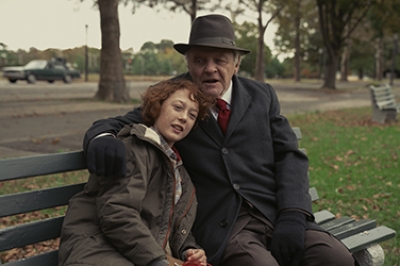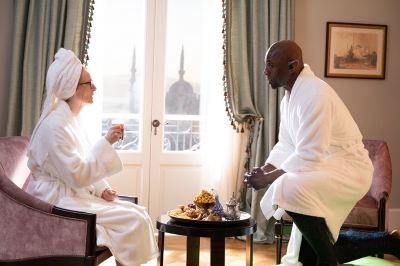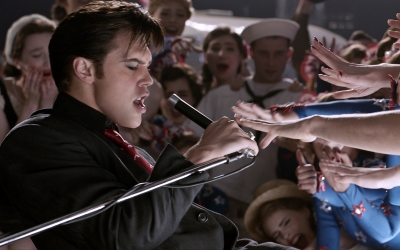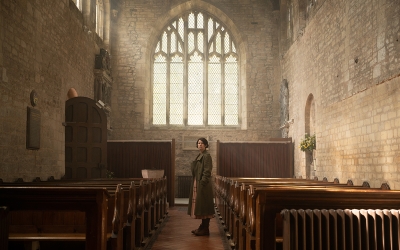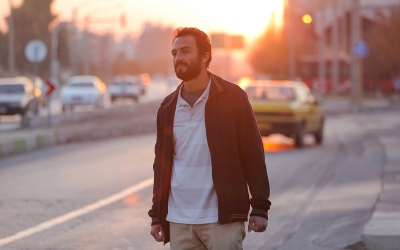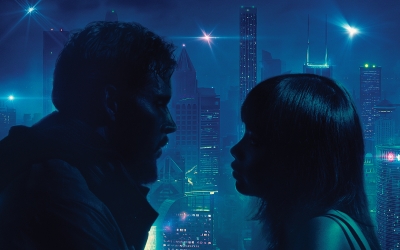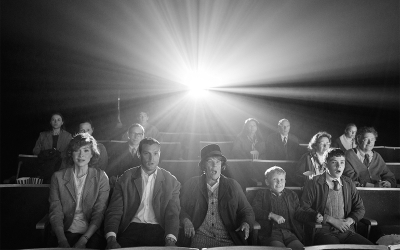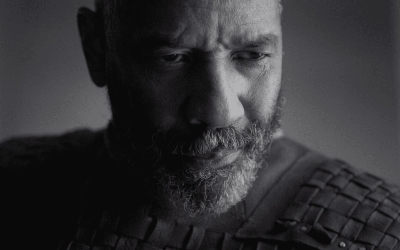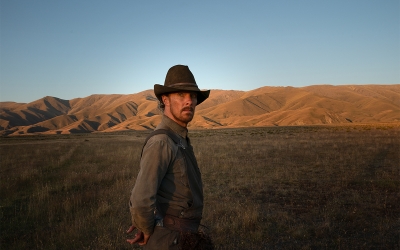Jordan Prosser

Jordan Prosser is a Melbourne-based writer, director, and performer, and a graduate of the VCA School of Film & Television. His short films have screened at dozens of international festivals, and he has appeared on stages across Australia, New Zealand, the Philippines, and the United Kingdom.
For the casual moviegoer unconcerned by matters of auteurship, it can still come as something of a shock to learn that the person behind the original Mad Max trilogy (1979–85), as well as its decade-defining follow-up, Mad Max: Fury Road (2015), also brought us the madcap animal antics of Babe: Pig in the City (1998) and the all-singing, all-dancing penguin colony of Happy Feet (2006) and Happy ... (read more)
Crafting a biopic is a near-impossible act of curation; of the hundreds of thousands of hours that make up a person’s life, which two and a half will accurately sum up their entire existence? Some recent attempts, like the excellent Steve Jobs (2015) or the Judy Garland biopic Judy (2019), limit their slice of life to a handful of defining moments and allow the viewer to extrapolate from there, ... (read more)
The films of Alex Garland (The Beach, 28 Days Later, Sunshine, Ex Machina, Annihilation) all share a distinct feeling of descent – an almost gravitational pull towards madness, towards decay, towards a loss of self. His new film, the ingeniously titled but only half-realised Men, continues this tradition.
It stars Jessie Buckley (devastatingly good in Maggie Gyllenhaal’s The Lost Daughter, an ... (read more)
Some directors leave their fingerprints on a finished product through a trademark visual style, a particular musical taste, or a recurring ensemble of actors. Others embody the notion that when something’s truly well made, the handiwork is invisible. Such is the case with Asghar Farhadi, two-time Oscar-winning writer and director of A Separation (2011) and The Salesman (2016), who continues to r ... (read more)
If there is a logical successor to the twentieth-century gangster epic, it may well be the modern-day high-stakes corporate drama. Both revolve around merciless protagonists operating by their own dubious moral code, amassing wealth and influence as they leave a trail of bodies (literal or figurative) in their wake. Instead of intimidation and assassination, our new corporate anti-heroes leverage ... (read more)
After a decade spent redefining Australian outback noir with Mystery Road (2013), Goldstone (2016), and their ABC TV offshoots, writer–director Ivan Sen turns his attention to a semi-futuristic Asian metropolis in Loveland, retaining his lean directorial focus while delving into even headier philosophical territory. His new film is a strange beast indeed – daring, beautiful, frequently confoun ... (read more)
On the sunny streets of Belfast in 1969, nine-year-old Buddy (Jude Hill) fights imaginary dragons with a wooden sword and a shield made from the lid of a garbage bin. When his Ma calls him home for tea, he races through the neighbourhood, bright-eyed and carefree. But the afternoon idyll is quickly shattered by a small army of Protestant rioters laying siege to the street, smashing windows and fir ... (read more)
Could Macbeth be Shakespeare’s most innately cinematic play? Even in its brief stage directions and off-stage action, it conjures up daring battlefields, horrible massacres, spine-tingling witchcraft, wandering spirits, duels on castle ramparts, and a moveable forest. Every few years another filmmaker tries their hand at it, Orson Welles (Macbeth, 1948), Akira Kurosawa (Throne of Blood, 1957), a ... (read more)
After eighteen months of wayward blockbusters and couch-ready, pandemical streaming entertainment, Jane Campion’s The Power of the Dog arrives like a stiff shot of pure cinema. Adapted from Thomas Savage’s 1967 book of the same name, Campion’s film offers no quick thrills, no easy answers, no simple heroes, and no mercy for its inhabitants. It’s a rare beast in an industry increasingly spl ... (read more)

